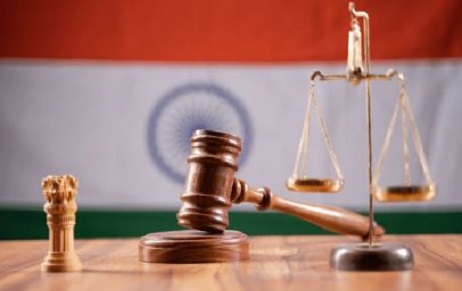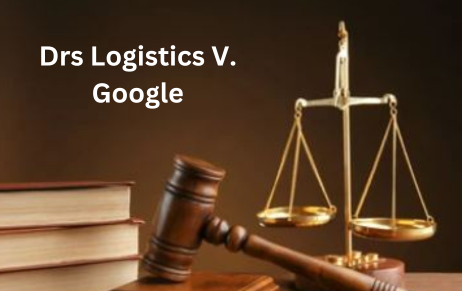ABSTRACT The project employs doctrinal research methods, i.e. secondary research which involves writing on basis…
India’s First Judgement on Standard Essential Patents
Introduction
Our lives, nowadays, seem to revolve around devices; technological devices like computers, cell phones, more importantly smartphones using 3G/4G networks, and even the earphones and headphones and other music players through which we listen to music.
For the proper functioning of the devices, they have to comply with certain standard. These standards may include hundreds and thousands of components, where these different components may be covered by different patents where the individual components are combined in a way that they work together to achieve functionality and a certain technical standard. Any patent that covers an essential part of any technology and which becomes imperative for the growth of that technology in the same field is a Standard Essential Patent (SEP). It is very difficult to determine which patent is essential to achieve that particular technical standard. If the SEP’s are to be used, a license is required for their use otherwise it will amount to infringement. And the licenses for the essential patents has to be on fair, reasonable, and non-discriminatory (FRAND) terms.
With the Delhi High Court delivering India’s first ever judgement on Standard Essential Patents (SEP), it has been a huge step forward especially for the contenders in the arena of technology. Justice Mukta Gupta has delivered a judgement on the essentiality of the Philips patent, the plaintiff in the case, and has held the defendants guilty of infringing the plaintiff’s patents.
A common judgement has been delivered against two different defendants, where the two suits were consolidated and clubbed together, and held the defendants of being guilty of having infringed the patent on DVD players held by the plaintiff, Phillips. The two cases were namely Koninklije Philips N.V. &Anr. v. Rajesh Bansal, CS(COMM) 24 of 2016 and Koninklije Philips N.V. &Anr. v. Bhagirathi Electronics, CS (COMM) 436 of 2017.
Brief Facts of the Case
Plaintiff has filed two suits claiming that their essential DVD video player patent (Patent No. 184753) had been infringed. The plaintiff is a company formally known as Koninklijke Philips Electronics N.V. and is a global electronic corporation. The component patent in the subject matter of the case is the Channel (De)coding technology used for DVD Video Playback function in a DVD Video Player. The Plaintiff also claims that their said patent is a SEP and thereby, any DVD Player manufacturer has to seek license from them.
Among the two suits, in one suit the parties which were initially impleaded are K.S. Negi and Mangalam Technology as defendant no 1. And 2. And in the other suit, the parties impleaded are Bhagirathi Electronics, Big Bazar and Home Solutions Retail (India) Ltd. asdefendant no 1,2 and 3 respectively. The defendants are local Indian manufacturers of DVD players, who imported DVD player components in order to assemble the components in India.The plaintiff states that their patent is a standard essential patent, any entity who is interested in manufacturing the DVD Video players should seek licenses for these essential patents. And the plaintiff further claims that these defendants utilized these SEP without taking licenses from the plaintiff and thus their act amounts to infringement. In this case, both the suits were consolidated and common evidence was led.
Issues and Courts Observations
On the basis of the pleadings of the parties, the Court discussed the following issues.
1)Ownership of Suit Patent
This issue, right from the start, was decided in favour of the plaintiff. The plaintiff submitted a copy of the certificate of registration and the certified copy of complete specification of suit patent. The defendants contended that the suit patent is an algorithm, and thus not patentable as it is not an invention under section 3(k) of the Patents Act, however there was no pleading or evidence led by the defendants in support of their allegations.
2) Essentiality of Suit Patent and its Validity under Indian Law
The plaintiff contended that essentiality of a patent necessarily imply that it would be technically impossible to manufacture, sell, lease etc. the equipment which complies with such standards without using the patented technology. It is impossible to comply with the given standards without infringing the patented technology. However, the concept of essentiality depends on the concept of standardization, as to what standards have been set by the industry, and here the Standard Setting Organization (SSO) plays an important role.
The plaintiff further claimed to have been granted essentiality certificates for the suit patent by the US and European Patent Office, proving to have the validity of its suit patent essentiality. However, the defendants challenged the above arguments by contending that the suit patent in India is not an essential patent because, India’s given standard do not corresponds to the Standard set by US and European Patent office and moreover their standards has not been recognized by Indian authority.
The plaintiffs asserted that their corresponding patents in US and EU have already been conferred the status of essentiality by independent bodies such as ISO and ECMA, and by virtue of Indian claims having the same claims as that of its US and EU patent, the Indian patent (suit patent) can also be acknowledged as being an essential patent.
Thus, the Court has held that the suit patent is an essential patent for the fulfilment of the DVD standard. The court has relied on the validity of these ‘essentiality certificates’ without examining it. Further, the validity of the patent is proved beyond doubt that when it was admitted by defendants that they had applied for license on the patent for commercially using the same.
3) Infringement of the Suit Patent
The Court has observed that the defendant has infringed the plaintiff’s patent on two counts:
Firstly, the suit Patent being a SEP, there exists no technical possibility for the defendants to create a device complying with the standard, without a grant of a license from the Plaintiff. Also, the Court held that since the defendants DVD players were using EFM (eight to fourteen modulation) + demodulation technique) which were also present in the suit patent was enough to prove the infringement committed by the defendant.
The second argument by the defendant was based on the principle of exhaustion of rights, which says that a product in which an Intellectual Right subsists, example a patent right, which has been sold by the owner or by others with the consent of the owner, the right of the owner in that product is said to be exhausted. Thus, can no longer be used by the owner (exhaustion doctrine or first sale doctrine). The defendants contend that the right in a product does not subsist once it has been sold to a manufacturer or licensee. Further, contended that they had purchased the product from an authorized licensee of the Plaintiff, which could not be substantiated by any evidence. Thus the very principle of exhaustion was rejected by the court.
4) Jurisdiction of Civil Court
The learned counsel of the defendant alleged that the plaintiff had abused its dominant position to create a monopoly and earn exorbitant profits and this issue of licensing of their standard essential patent was a competition law issue and should have been under the jurisdiction of the Competition Commission of India (CCI) and not under a civil court. The Court rejected it saying that it had already been settled before this court in the decision of Telefoneaktiebolaget LM Ericsson (PUBL) v. Competition Commission of India and Ors. , in which it was held by the Court that, the CCI and the civil court are different from each other and operate in different realms and the remedy offered by the two is vastly different, however it is not mutually exclusive and one is not destructive or exhaustive of the other.
5) License
It’s the plaintiff averred that the royalty should be determined keeping in mind the patent pool, on the basis of which licensing occurs. However, the Defendant states that the royalty asked for by the plaintiff does not comply with Fair, Reasonable and Non-Discriminatory (FRAND) principles, which determines patent licensing terms that is usually followed in cases of SEP. However, there was no in-depth analysis as to what the scope and the method of determination of FRAND rate was, especially when applying to royalty rates. The court relying on the decision reported in Commonwealth Scientific and Industrial Research Organisations vs. CISCO Systems, Inc. concluded that royalty rates may be decided on informal negotiations. The Court held that the Mangalam and Bhagirathi are required to pay to the plaintiff royalty @USD 3.175 from date ofinstitution of suit till 27th May, 2010 and from 28th May, 2010 @USD 1.90 till 12th February,2015.
6) Damages
The Court in relation to punitive damages, relying on the Hindustan Lever judgement held that RajeshBansal, who was ex-employee of the plaintiff, he is liable to pay Rs. 5 lacs as punitive damages.
Hence, both the consolidated suits are decreed in favour of the plaintiff and against the defendant.
Conclusion
The Hon’ble High Court’s judgement is India’s first ever, and certainly a landmark judgement, on Stand Essential Patents. There are still lot to be discussed about issues relating to FRAND principle. However, this judgement will open the path for adjudicating and resolving other pending cases in matters related to SEP infringements and FRAND rates.
Author: Maithili Prabhu, M Sai Krupa Interns at Khurana & Khurana, Advocates and IP Attorneys. In case of any queries please contact/write back to us at swapnils@khuranaandkhurana.com.
References



